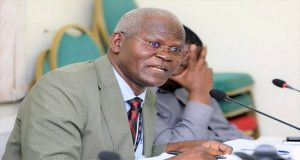
French voters handed Emmanuel Macron a second term as president on Sunday in an election in which he comfortably defeated far-right leader Marine Le Pen.
Following are related developments that can be expected in the run-up to legislative elections in June that will determine whether Macron has a parliamentary majority to vote through his policies.
France’s Constitutional Court will officially announce the results of the presidential election on April 27-28.
Around this time, Prime Minister Jean Castex’s government can tender its resignation. If Macron accepts, he can name a new prime minister to form a caretaker government until the June elections.
A swearing-in ceremony is to be held before Macron’s current mandate runs out on May 14.
Macron has said his first trip abroad after the vote will be to Berlin to meet German Chancellor Olaf Scholz. This may happen in the next few days.
Macron is also due to deliver his vision for the future of Europe at a conference in Strasbourg on May 9.
On May 16-20, candidates from all parties are expected to register to run for 577 seats in the legislative elections.
The first round is scheduled for June 12. In districts where no candidate wins an outright majority, a second round will be held a week later.
Candidates can run in the second-round vote if they win at least 12.5% of the vote in the first.
Macron could in theory dissolve the current parliament early and advance the date of legislative elections by two weeks, thereby perhaps building on momentum from his presidential victory in the hope of winning more seats in parliament.
After parliamentary elections, French presidents traditionally name a new prime minister from the party with the most votes to form a new government.
In recent legislative ballots, the president’s party has won a majority.
Should the outcome be different this time, Macron would have little choice but to name a prime minister from another party, ushering in what has traditionally been a tense period of cohabitation during which presidential powers are severely curbed.
During a cohabitation, the president remains the head of the armed forces and retains some foreign policy influence but the government has responsibility for most other day-to-day matters of state and policy.
Source: Reuters






